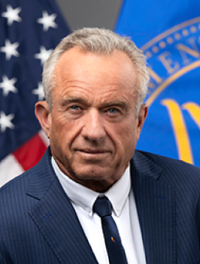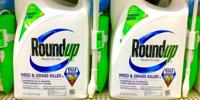
Kennedy Jr.
WASHINGTON – Hundreds of public comments have been filed as the FDA seeks to define “ultra-processed foods,” with warnings ranging from a lack of research to a strain on short-staffed schools struggling to feed children affordably every day.
During Senate hearings on his appointment as head of the Department of Health and Human Services, Robert F. Kennedy Jr. called UPFs a “poison.” A law firm at which he was previously employed had filed an ambitious lawsuit in Philadelphia federal court, likening the marketing and health impacts of UPFs to tobacco, but that case has since been tossed.
RFK Jr. in July announced a project to create a federally recognized definition for UPFs as part of his Make America Health Again Agenda, presumably to then regulate them. Many of the more than 200 comments filed before an Oct. 23 deadline tout the improvement in quality of school meals but are concerned that labeling foods as UPFs and declaring them dangerous would harm that effort.
Processing a food doesn’t necessarily make it unhealthy, as a dairy group pointed out in one comment.
“Not all processed foods are created equal, and some are shown to be beneficial to health,” the California Dairy Council wrote.
“Many processed foods – like frozen vegetables, canned beans or pasteurized milk – retain their nutritional value during processing and are essential for food safety, convenience and accessibility.”
Yes, drinks sweetened with sugar are linked to poor health, the Dairy Council wrote. But food companies have introduced new foods to reduce sodium, sugar and saturated fats, it added.
“Reducing consumption of nutrient-poor UPFs is one important way to address the rising rates of chronic disease, but if not one with proper science-based efficacy, a UPF definition may ultimately reduce intakes of key nutrients and further reduce overall diet quality,” the Dairy Council wrote.
The nonprofit Physicians Committee for Responsible Medicine wrote that it is not clear that a definition of UPFs is needed. But if it happens, the question of which are healthy and which aren’t needs to be asked, it added.
“Placing an inordinate amount of blame on ‘ultra-processed foods’ distracts from the true cases of diet-related illness,” it wrote.
The public-interest law firm Washington Legal Foundation also filed a comment, calling the use of federal resources to define UPFs for regulatory purposes “the wrong choice.”
Emulsifiers are used to help liquids mix. The FDA’s request for information mentions them, but WLF notes they are used in baby formula – “a literal life-saver for children with latching issues or whose parents are unable to breastfeed,” it says.
“The term ‘ultra-processed’ is not ‘the best term to use,’ devoid as it is of any inherent meaning or scientific consensus,” WLF wrote.
“But there is no better ‘term.’ The problem is the search for a universal term that focuses on food preparation and construction, rather than nutritional content itself.”
A federal judge tossed the UPF lawsuit filed by Morgan & Morgan earlier this year after it was unable to show the specifics of which food the plaintiff ate allegedly caused his health problems, like diabetes.
Judge Mia Roberts Perez called it “woefully deficient” in establishing a causal link between UPFs and illness.
“By naming over 100 brands, Plaintiff has put thousands of products at issue without any additional information to identify which caused his harm. That is unacceptable,” Perez wrote.








